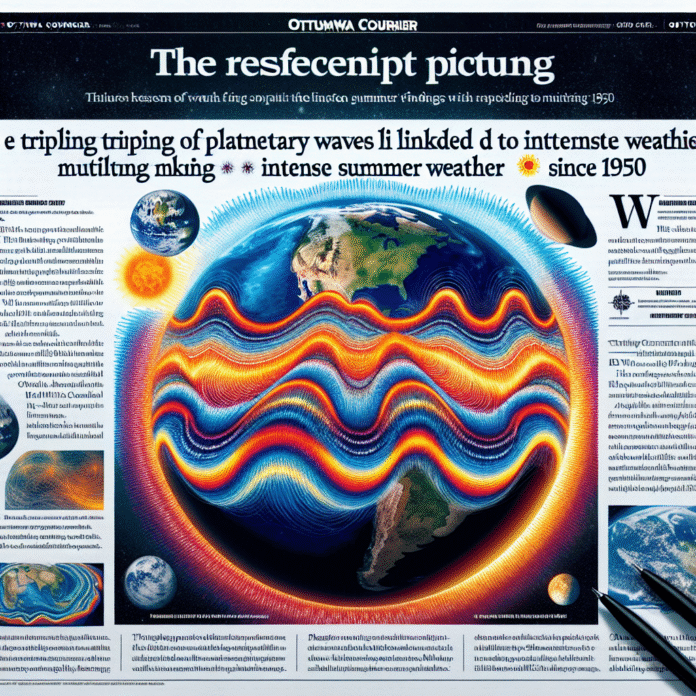Research Indicates a Tripling of Planetary Wave Activity Associated with Extreme Summer Weather Since 1950
Ottumwa Courier
Research Reveals Surge in Planetary Waves Associated with Extreme Summer Weather
A recent study has uncovered a significant increase in the frequency of planetary waves, which are linked to severe summer weather patterns. Since 1950, the occurrence of these atmospheric phenomena has tripled, raising concerns among climate scientists about the implications for weather extremes.
Planetary waves play a crucial role in shaping weather patterns by influencing the jet stream, which can lead to prolonged periods of heat, heavy rainfall, and other extreme weather events. This increase in wave activity has been correlated with rising global temperatures, suggesting that climate change is a driving factor behind these shifts.
Researchers analyzed atmospheric data over the past seven decades, noting that the intensification of planetary waves contributes to the unpredictability of summer weather. Regions that once enjoyed stable climates are now experiencing more frequent instances of heatwaves, storms, and flooding.
The findings highlight the urgent need for improved climate models to better predict how such changes in planetary wave behavior will impact local and global weather systems. As the planet continues to warm, understanding the dynamics of these waves will be essential for developing strategies to mitigate the effects of extreme weather on communities and ecosystems.
Additionally, scientists emphasize the importance of taking action to address climate change, as reducing greenhouse gas emissions may help stabilize weather patterns and lessen the severity of future climate-related disasters. The study serves as a critical reminder of the interconnectedness of atmospheric phenomena and the pressing challenges posed by a warming world.


